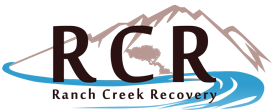Every person’s recovery journey is fundamentally different. Some may struggle to avoid people who trigger their desire to use, while others find staying away from places that encourage or trigger substance use difficult to accomplish. Some find the initial detox phase to be the most challenging stage of rehab, while others feel like the pressures of achieving sustained substance abstinence to be the hardest part of their recovery journey.
That’s why it is so important to understand that each person’s individual path to sobriety is a unique occurrence, built upon individual experiences and personally identified goals. Being able to avoid unforeseen relapse incidents is no small task, and it becomes even more difficult when those around you find themselves experiencing a relapse of their own.
But, if you prepare your mind and spirit to face the challenges you see, and the potential challenges that are yet to occur, you will be better capable of not only avoiding personal setbacks, but also thriving when those around you stumble and fall.
Keep in Mind: Relapse is Common
Being able to achieve sobriety and never waiver from that accomplishment is the ultimate goal of every person in recovery. For some, this goal is realistic. But for others, experiencing setbacks is a normal part of the overall recovery journey.
The National Institute on Drug Abuse identified that, while in recovery, 40 to 60 percent of individuals will experience a relapse incident. While these numbers may frighten some, it is more important to simply understand that having a setback during your journey to sustained sobriety is not unheard of.
The plain fact is that overcoming the disease of addiction is no easy achievement but a constant work in progress. Being able to accept yourself and embrace your flaws is not only healthy, but it’s also incredibly necessary to maintain your resolve during the difficult times you may encounter.
How to Manage a Loved One’s Relapse
Being able to manage your expectations and accept yourself if you experience a relapse is one thing. But how can you process your feelings if a loved one experiences a relapse when they were supposed to be walking the road of recovery with you and providing you equal support and guidance?
Having a plan in place to face this possibility and overcome the emotional toll associated with this scenario is essential to maintaining your own progress in recovery.
A few key concepts that can help you stay emotionally strong and self-aware during difficult times include:
Develop a Structured Schedule and Stick to It
Having no plan for your day-to-day activities is a recipe for disaster. That’s why it’s important to develop a structured daily and weekly schedule and stick to it.
A structured schedule will help you achieve your established goals and provide you with a plan when things around you potentially faulter. Staying sober is a high priority, for sure, but developing and pursuing other goals, like going back to school or changing careers, can help you maintain that sobriety.
Find that Inner Balance
In order to maintain your sobriety, you need to examine your old patterns of behaviors and make the necessary adjustments to avoid past mistakes.
Substituting negative decision patterns with healthier options enables you to not only prevent missteps, but also improve your health and wellbeing along the way.
Activities like yoga and meditation are excellent for achieving inner balance and improved self-control. Staying sober in the long-term is about breaking old habits and creating new, healthier routines.
Make Efforts to Create a Supportive Sober Network
Having to deal with a loved one’s relapse is difficult, but facing it with a strong sober support network makes the task a bit more manageable.
While starting your recovery journey is a process of self-actualization and personal discovery, establishing a support network of friends and family who genuinely love you and encourage your continued sobriety is essential. They function as a safety net to protect you if you fall and provide you with an added level of accountability when you face personal difficulties and potential setbacks.
By taking the time to identify people in your life who love you for who you are and support your efforts to better yourself, you are improving your ability to face any challenge that comes along your path.
How to Prevent Relapse
Preventing your own relapse requires planning and preparation. Being positive and optimistic are great tools to implement throughout your recovery journey, but having a plan in place that provides you guidance and direction if you do experience an unforeseen setback in your sobriety is essential.
First and foremost, it is important to identify a treatment facility that you trust and can contact immediately if you find yourself sliding back into your addictive behaviors.
With clinical guidance provided by trained professionals, you can address your relapse and overcome the isolated incident. Your recovery journey does not need to be walked alone, so don’t be afraid to seek help from a treatment facility that specializes in individual addiction help and relapse prevention.
Comprehensive Addiction Recovery and Relapse Prevention at Ranch Creek Recovery
Relapse can happen to anyone, but your rehabilitation route can mean all the difference and better prepare you for the challenges ahead. At Ranch Creek Recovery, we address addiction recovery and relapse prevention head on through our non-12-step, individualized, holistic addiction treatment programs.
Our team of treatment experts will work one-on-one with you to create a custom treatment and recovery plan that will help you feel confident and ready to enter (or re-enter) your new, sober life.
Learn more about Ranch Creek Recovery, including what we offer and what we treat.
Contact us today to get your questions answered. We are here for you every step of the way.













